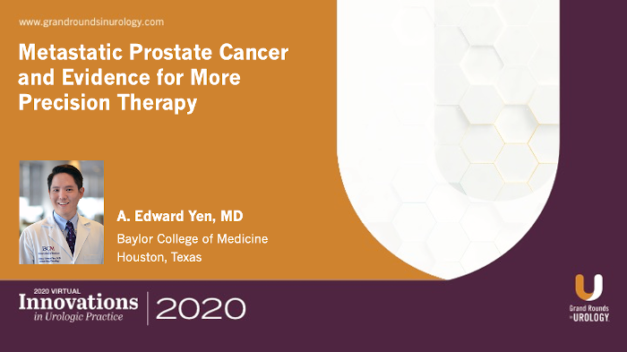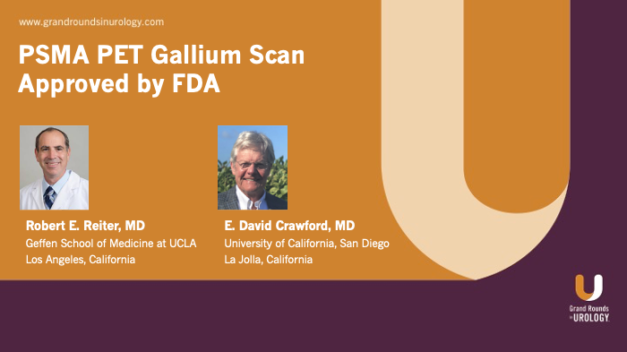PSMA PET Imaging in Advanced Prostate Cancer
Jeremie Calais, MD, MSc, Assistant Professor and Director of the Clinical Research Program of the Ahmanson Translational Theranostics Division at UCLA, discusses the use of prostate-specific membrane antigen PET imaging, or PSMA PET, in diagnosing advanced prostate cancer. Noting that PSMA PET is currently the most sensitive imaging technique, he reviews well-known studies, STOMP and ORIOLE, and shares patient success stories of PSMA PET guided therapy. PSMA PET is able to detect tumor deposits of 4.5 mm with 90% accuracy and 2.3 mm with 50% accuracy making it more effective in locating disease migration. However, there will still be some micrometastases that are too small to yet be detected by PSMA PET. Because active distant lesions are not successfully identified under all imaging types, Dr. Calais proposes including the modality employed when stating a patient’s disease progression; for example, “mCRPC by PSMA-PET,” thereby expressing the means by which the disease stage was determined. PSMA PET can be used to follow disease mutation and more quickly identify non-metastatic castration-resistant prostate cancer.
Read More




